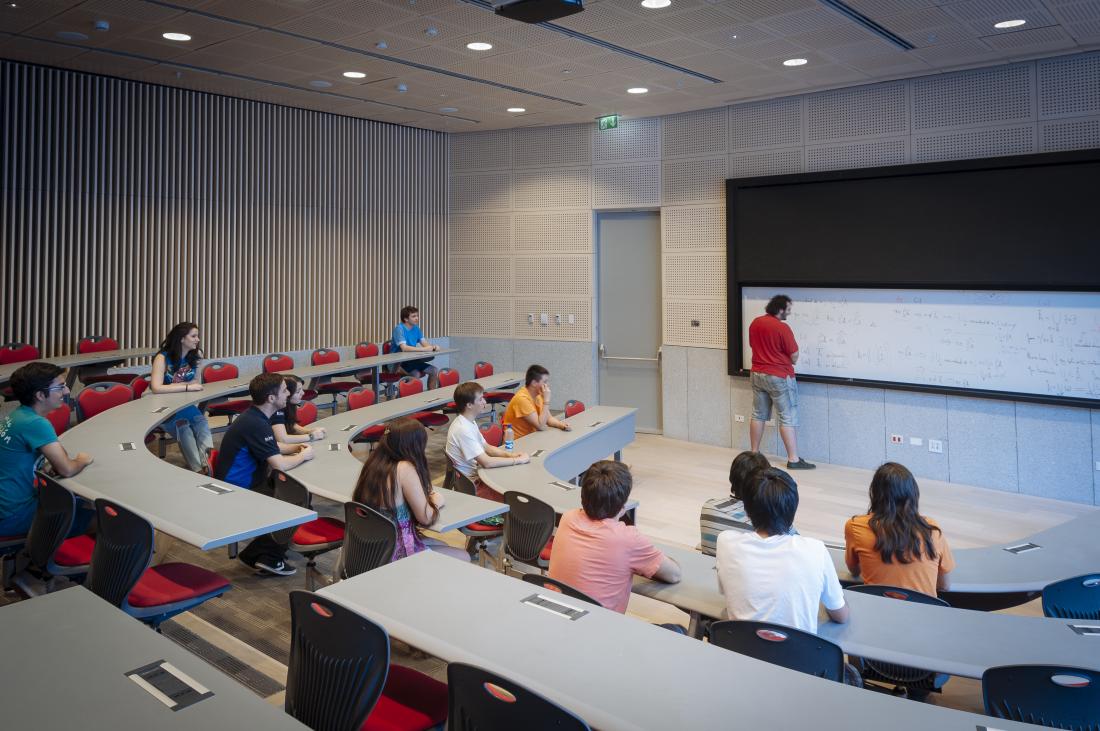Biased Beliefs and the Dynamic Role of Information in College Choice in Chile
- Children
- Higher education and universities
- Secondary schools
- Students
- Youth
- Enrollment and attendance
- Student learning
- Aspirations
- Attitudes and norms
- Information
Tertiary education is a critical stage for developing skills that are valued in the labor market, but the economic returns to tertiary education vary across institutions and fields of study. When students lack information about the returns to a college degree, they may underprepare for admissions testing and subsequently reduce their college options. Researchers are conducting a randomized evaluation in Chile to study the impact of altering high school students’ beliefs about the returns of college degrees on their decisions to invest in college preparation and which program they choose.
Policy issue
For young adults who are preparing to enter into the labor force, pursuing tertiary education opportunities offers a critical avenue for developing skills that are valued by employers. However, the returns to tertiary education vary across institutions and fields of study. In order to qualify for a high-return post-secondary educational program, students generally must make serious investments in their secondary education and college admission preparation. When students lack information about the returns to a college degree, they may underprepare for admissions testing and subsequently reduce the number of colleges for which they are competitive based on their academic qualifications. Information frictions may also limit the effectiveness of other programs, such as financial aid, which would have a disproportionate impact on students from disadvantaged backgrounds. If information disparities can affect a student’s ability to qualify for high-return tertiary education, can changing a student’s beliefs about the returns of different programs affect their admissions outcomes?
Context of the evaluation
In Chile, tertiary education generally consists of professionally-oriented programs (such as law, medicine, and engineering) with inflexible course requirements, which make it difficult to change academic tracks once begun. Given that university and degree choice can have a significant impact on future earning potential, it is important that high school students make informed program decisions before embarking on a path towards a college degree. Students must make two important decisions: first, whether to invest in test preparation; and second, which university program to attend. Information frictions may bias students’ beliefs about the returns to test preparation and/or the value of specific degrees. Such frictions are most common among girls and students of low socioeconomic status, who often have fewer college-educated people in their social networks who might advise them on how to choose a program.
College admission in Chile is centralized and based on a Deferred Acceptance mechanism, in which students are assigned to their most preferred option among programs where they would be admitted. Students are ranked on an index that combines GPA, class rank, and scores from the National Higher Education Admission Test (PSU). The test receives the largest weight in determining the students’ rankings and, as such, a large industry of after-school test preparation programs has risen over the last few decades. Most students must invest heavily and proactively in test preparation to qualify for coveted college programs, implying that the decision to choose a college starts well before the moment of applying.

Details of the intervention
Researchers are conducting a randomized evaluation in Chile to better understand possible information frictions facing high school students as they prepare for college. In partnership with the largest test preparation company in Chile and DEMRE—the agency that manages the test administration and application platform—they will evaluate how an information intervention
alters high school students’ beliefs about the returns of college degrees and, subsequently, impacts both their decisions to invest in college preparation, as well as which program they ultimately choose to attend.
Students in their final year of high school will be randomly assigned by classroom to receive information on returns of college degrees at two different points in time: either a short time before applying to college; or at the beginning of the academic year. By imparting information at different times, researchers aim to understand whether information delivered at the right time—i.e. a year in advance, when students still have time to make adjustments to their preparation—is more effective than information given at the time of selecting a college.
Researchers will conduct one baseline survey and two follow-up surveys of approximately 30,000 students—one at the beginning of the second term of their senior year, and one a month before the test. A further in-depth survey will be conducted among a smaller sample of students. The information intervention will be tailored to the results of the baseline survey and pilots. Further data from the test preparation service, including practice test scores and student participation records, will be matched with tertiary education outcome data and student demographic records to track the impact of the information campaign on preparation and college outcomes.
Results and policy lessons
Research ongoing; results forthcoming.

